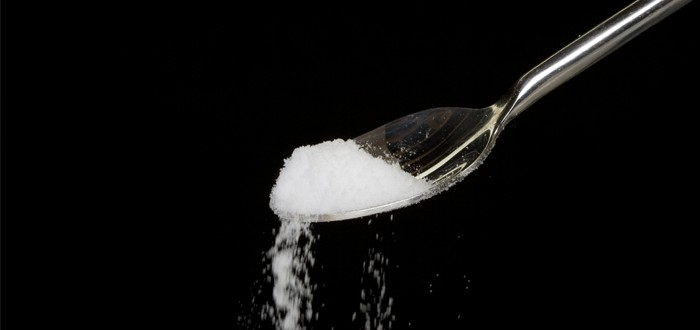This is sweet. Saccharin — the artificial sugar that once was feared to be carcinogenic — may prove itself a magic ingredient that stops the growth of mesothelioma.
Researchers at the University of Florida Health Sciences Center discovered that saccharin interferes with the processes that allow aggressive cancers to spread.
The researchers haven’t yet tested saccharin against mesothelioma, but they expressed confidence that if a cancer is aggressive — and mesothelioma definitely is — then the sweetener will put it out of business.
Or at least saccharin will make the cancer more vulnerable to chemotherapy, radiation and other lines of attack.
Saccharin Disrupts Cancer Cell Growth
It turns out that saccharin has an affinity for carbonic anhydrase IX, a cancer-cell enzyme.
When saccharin links up with carbonic anhydrase IX, it interferes with the enzyme’s role as a regulator of hydrogen-ion concentration within the cancer cell.
In other words, it causes an adverse alteration of the cancer cell’s pH level. This change has the effect of disrupting the cancer cell’s growth process.
Because it can’t grow well, it loses traction in the race to spread throughout the body.
And because it can’t so easily grow and spread, the cancer practically becomes a sitting duck for any chemotherapy or radiation that a doctor might throw in its path.
The researchers are also keen about attacking cancer through its carbonic anhydrase IX enzyme for the reason that healthy cells have little or no carbonic anhydrase IX within them.
Consequently, the only cells likely to be harmed by the onslaught of saccharin are cancerous ones.
The idea to target carbonic anhydrase IX with saccharin came from a graduate research assistant who had gained an awareness of the enzyme’s damaging addiction to the artificial sweetener.
To test his notion that saccharin would be bad news for carbonic anhydrase IX, the research assistant and some lab colleagues made a beeline for the nearest eatery condiment counter and grabbed a few packets of Sweet’N Low.
Back at the lab, they gathered around the specimens of aggressive cancers growing in Petri dishes and started sprinkling on the good-tasting granules.
Then they stood back and noted the results over a period of days and weeks.
From the cancer specimens in dishes, the researchers eventually stepped up to testing with mice. Now, their next step is to conduct a more comprehensive study, possibly involving human subjects.
Saccharin Was Considered Unhealthy
You may be surprised to be told now that saccharin might eventually save your life — or add years to it as you battle mesothelioma.
Your surprise no doubt comes from your memories of all the bad publicity that engulfed saccharin several decades ago.
The bad publicity was sparked by studies contending that saccharin — a relatively new invention that made diet soft drinks and sugar-free snacks possible — caused lab rats to develop bladder cancer.
Those studies prompted Congress in 1977 to require a warning label on products containing saccharin.
The label requirement was lifted in 2000 after more studies on saccharin were produced and found that humans weren’t likely after all to develop bladder cancer from its consumption.
The University of Florida research into saccharin and aggressive cancer was published in a recent issue of the journal Bioorganic & Medicinal Chemistry.
The researchers also gave a presentation on the subject in March at the American Chemical Society annual meeting held in Denver.


